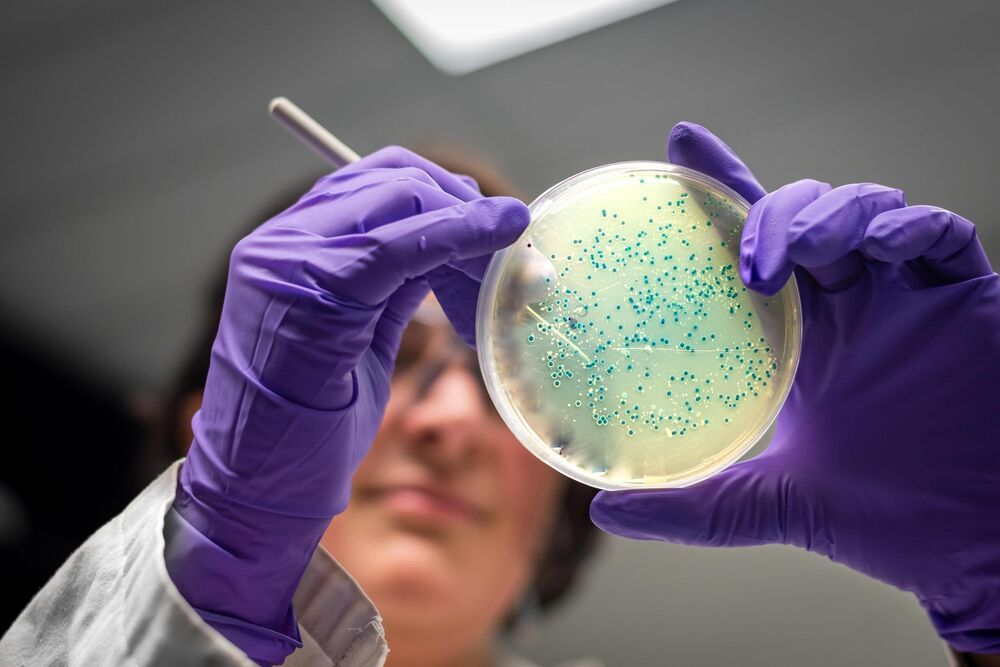Envisioning an animal-free drug supply, scientists have — for the first time — reprogrammed a common bacterium to make a designer polysaccharide molecule used in pharmaceuticals and nutraceuticals. Published on March 22021, in Nature Communications, the researchers modified E. coli to produce chondroitin sulfate, a drug best known as a dietary supplement to treat arthritis that is currently sourced from cow trachea.
Genetically engineered E. coli is used to make a long list of medicinal proteins, but it took years to coax the bacteria into producing even the simplest in this class of linked sugar molecules — called sulfated glycosaminoglycans — that are often used as drugs and nutraceuticals…
“It’s a challenge to engineer E. coli to produce these molecules, and we had to make many changes and balance those changes so that the bacteria will grow well,” said Mattheos Koffas, lead researcher and a professor of chemical and biological engineering at Rensselaer Polytechnic Institute. “But this work shows that it is possible to produce these polysaccharides using E. coli in animal-free fashion, and the procedure can be extended to produce other sulfated glycosaminoglycans.”
